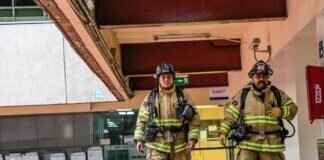Some 350,000 commuters who work in New Jersey and New York City could soon be scrambling for other ways to reach their destinations if NJ Transit engineers walk off the job early Friday. The potential strike would affect the nation’s third-largest transit system, which operates buses and rail in the state, providing nearly 1 million weekday trips, including into New York City. This walkout would halt all NJ Transit commuter trains, impacting heavily used public transit routes between NYC’s Penn Station and communities in northern New Jersey. Additionally, it would affect travelers’ access to Newark Airport, which has faced delays of its own recently.
Wages have been the main sticking points in negotiations between the agency and the Brotherhood of Locomotive Engineers and Trainmen. The union claims its members earn an average salary of $113,000 a year, suggesting an agreement could be reached if agency CEO Kris Kolluri agrees to an average yearly salary of $170,000. However, NJ Transit leadership disputes the union’s data, stating that engineers have average total earnings of $135,000 annually, with the highest earners exceeding $200,000. Kolluri expressed reluctance to continue giving money to solve the problem, emphasizing the importance of considering who will bear the financial burden.
Tom Haas, the union’s general chairman, criticized NJ Transit for adopting a “take it or leave it” approach to salaries during negotiations. He highlighted the union’s desire for equal pay for equal work, emphasizing that trains cannot run without engineers. If the strike does occur, it would mark the state’s first transit strike in over 40 years, raising concerns about the potential impact on commuters and the transportation system as a whole.
Strike Contingency Plans: The agency has outlined contingency plans in the event of a strike, intending to increase bus service and utilize chartered carriers to transport passengers to key locations. However, these buses would only accommodate about 20% of current rail customers, prompting NJ Transit to encourage individuals who can work from home to do so if a strike transpires. The potential strike has already led to disruptions, with NJ Transit canceling train and bus service to MetLife Stadium for scheduled events and uncertainty regarding service for upcoming concerts.
Alternative Travel Options: In the event of a walkout, NJ Transit plans to run chartered buses from satellite lots to the Port Authority Bus Terminal in Manhattan or PATH train stations in northern New Jersey. These buses would offer limited capacity compared to the trains, potentially causing challenges for the significant number of daily commuters. While some passengers may switch to existing bus routes or utilize chartered carriers, others may opt to drive into New York City, facing congestion pricing fees as a result.
Negotiations Ongoing: Following the rejection of a labor agreement by union members, both parties have engaged in ongoing negotiations to address the dispute. The offer presented by management aimed to raise the average annual pay of full-time engineers, although union leaders disputed the figures provided. With the support of federal mediation, discussions have been held to resolve the conflict, with Governor Phil Murphy expressing optimism about reaching an agreement. As the deadline approaches, the focus remains on finding a resolution to avoid the potential strike and its implications on commuters and transportation services.














